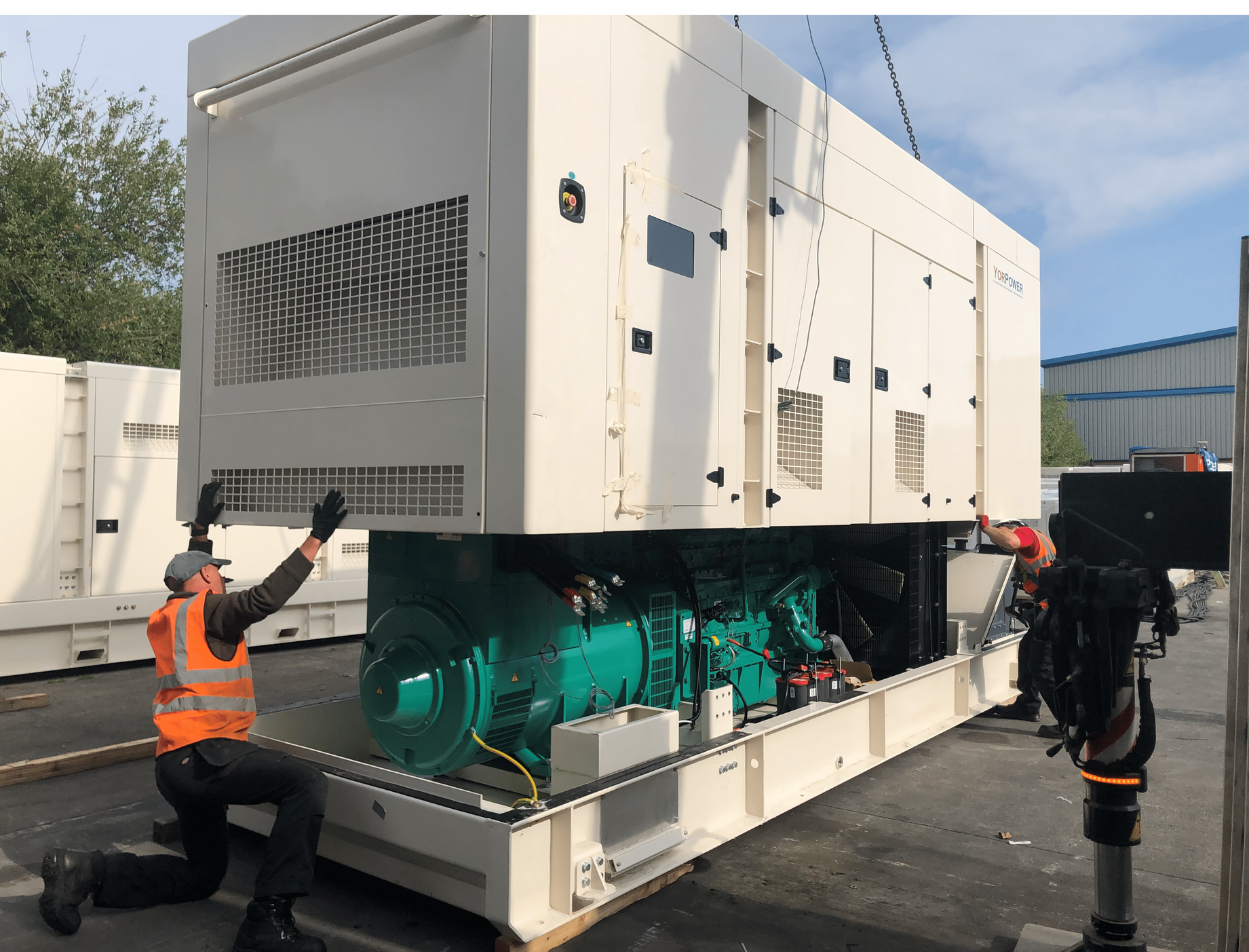How to Reduce Generator Noise
April 26, 2024
Noise levels can be a major consideration for people looking to hire or buy a generator. There is a general consensus that generators are quite noisy by nature, but at YorPower we have some great tips to help reduce your generator’s noise output:
It is also worth noting that generator size plays a role in noise output. Smaller units such as 20kVA generators and 30kVA generators tend to operate more quietly than larger models, making them a popular choice for noise sensitive environments. Mid range options like 50kVA generators offer a practical balance between power output and acoustic levels for many commercial applications.
1. Distance your unit from your surroundings
A simple yet overlooked way of reducing generator noise is to increase the distance between yourself and your unit. Keeping your generator further away will mean the noise is spread over a greater distance and has less acoustic intensity. By doubling the distance from the generator, you get a 6dB noise reduction in open space.
2. Install Anti-Vibration Mounts (AVM)
Another simple way to reduce a generator’s noise is to limit it at the source by installing anti-vibration mounts (AVM).
Placing AVM under the generator will isolate its vibrations and reduce noise transmissions. There are various AVM options, including: rubber mounts, spring mounts and dampers – all with different dB level reductions depending on your requirements.
Also, as well as isolating vibrations under the generator, you can fit flexible joints between the generator and connecting systems will reduce noise transmission to surrounding structures.
3. Acoustic Barriers E.g., Walls, Fencing, Enclosures
Hard surfaces create acoustic barriers which limit the transmission of noise by reflecting sound waves.
If a generator is installed in a plant room, hard walls will act as an acoustic barrier and limit the transmission of noise beyond this room. In similar fashion, standard generator canopies and enclosures can reduce noise by a minimum of 10dB, whilst bespoke and custom enclosures can provide even bigger reductions in transmission.
As well as enclosures, you can use acoustic fencing to create additional barriers. For construction, utilities networks and outdoor events, temporary acoustic fencing is a quick and effective noise reduction solution. For larger installations, acoustic screens can be also built and permanently installed.
4. Acoustic Insulation
Using acoustic barriers to reflect sound waves will only restrict noise beyond the barrier. Therefore, to reduce noise within a generator enclosure or plant room the space will need to be insulated to absorb the sound.
Acoustic Insulation involves lining hard surfaces with sound-absorbing materials or installing acoustic wall panels and ceiling tiles. For industrial uses, wall panels made from perforated steel are usually favoured, however other insulating materials are also available.
5. Attenuators
For larger installations, attenuators are the most effective way to reduce noise transmission from generators.
An attenuator allows air to pass through it, while limiting the transmission of noise. Air is forced between splitters which absorbs sound and reduces its wavelength. An attenuation system can reduce noise from between 48 – 85dBA at 1m. In general, the larger the attenuator, the greater the noise reduction the device will provide.
Generator Services
At YorPower we have over 60 years’ experience in generator servicing, generators maintenance and generator repairs in the UK. We have engineers and support staff strategically placed throughout the UK to ensure we’ve got all regions covered and no enquiry is too far.
If you’re having issues with generator noise or performance, get in touch today and we’ll arrange visit and work with you to find a solution at the most competitive price. From more information, visit our generator servicing and maintenance page.


